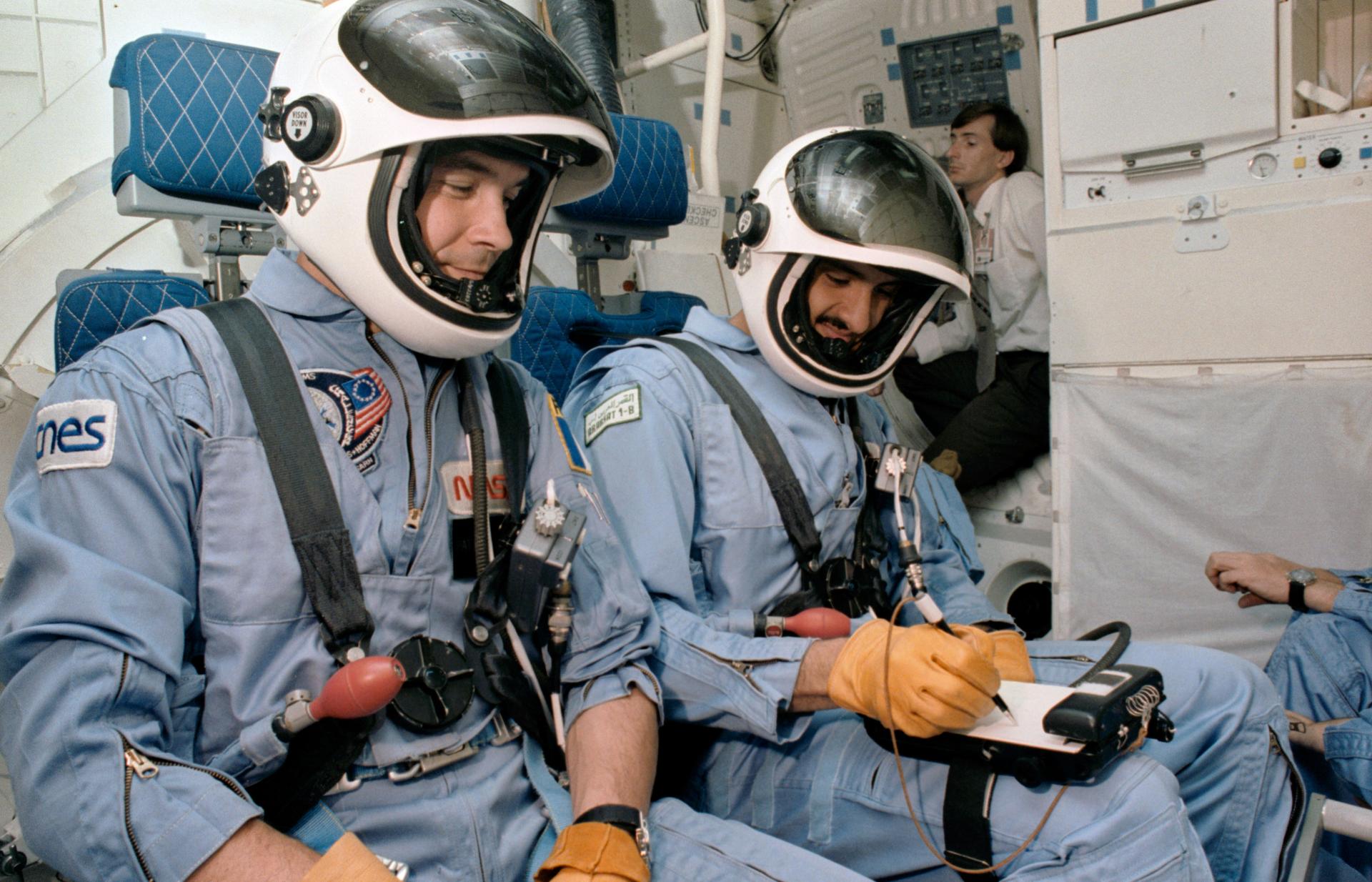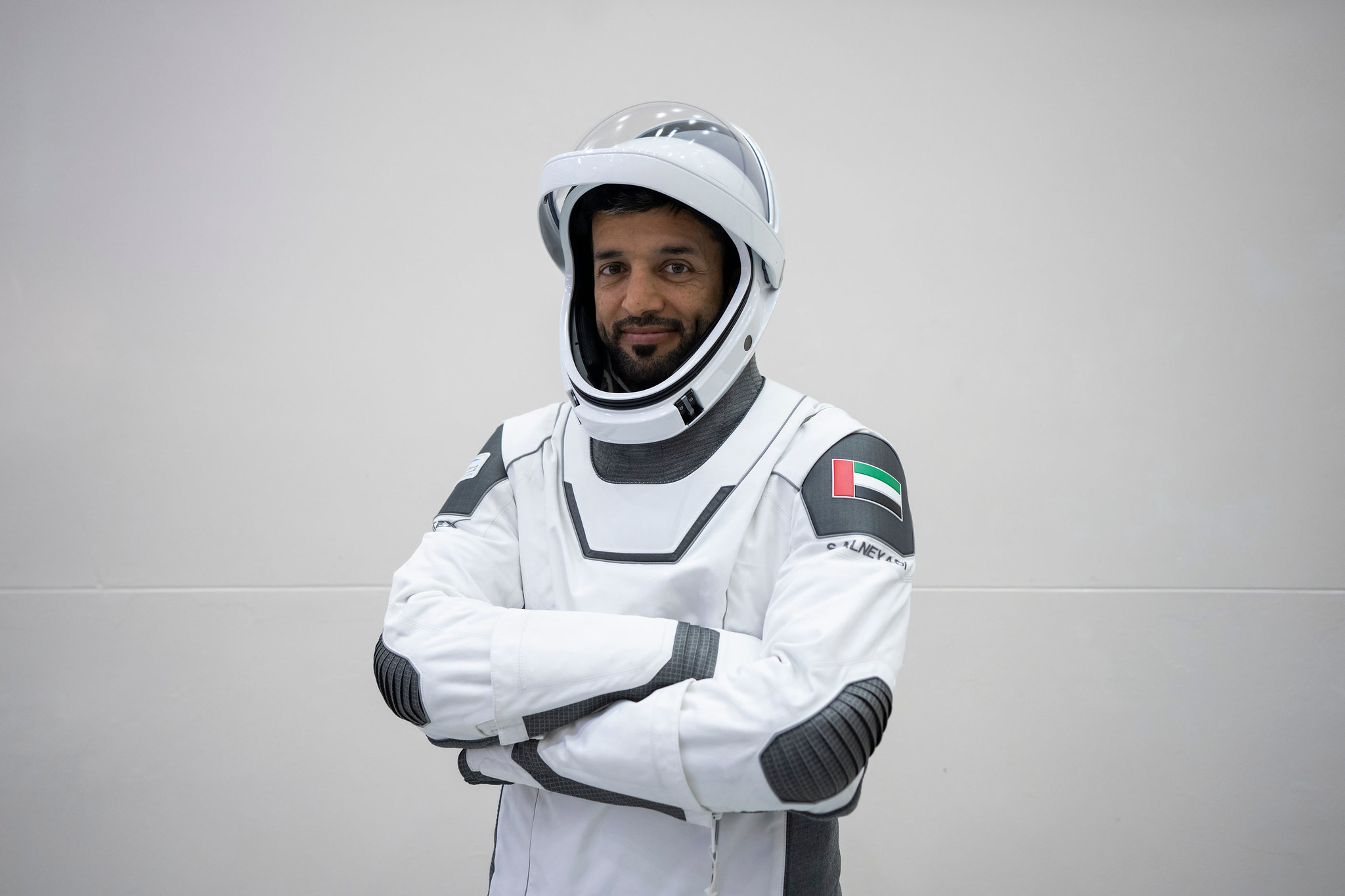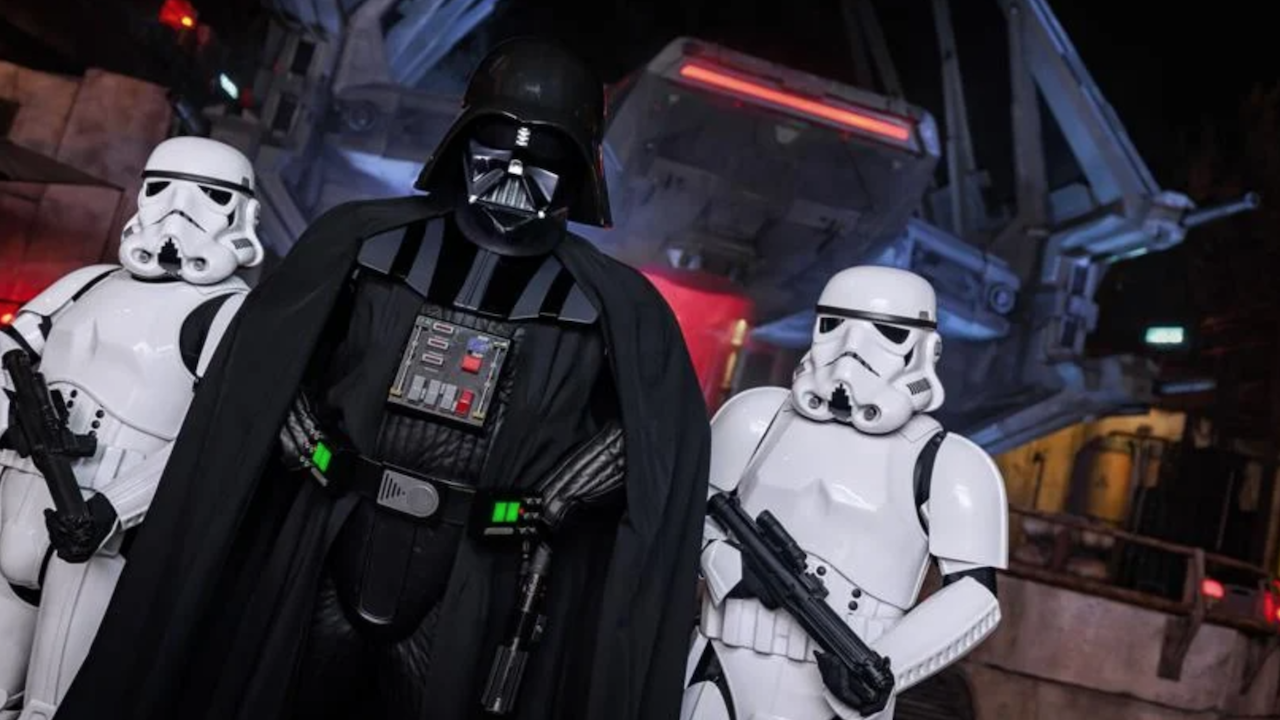UAE astronaut on SpaceX Crew-6 mission will spend Ramadan in space
Travelers aren't required to fast during the Islamic holy month, but Sultan Al-Neyadi said he may try to do so, at least for part of his mission.

Crew-6's Muslim astronaut may try to fast for Ramadan, at least for part of his mission.
Sultan Al-Neyadi said, that as a traveler, he is allowed to keep eating normally during the first six-month excursion to the International Space Station ever flown by a United Arab Emirates (UAE) astronaut. That journey will begin no sooner than Feb. 26, when he and three other astronauts ride to space atop SpaceX's Falcon 9 rocket in a Crew Dragon spacecraft.
Al-Neyadi told reporters on Jan. 25 that he may need to keep a relatively consistent meal schedule during the mission, as he is not able to do activities "that can jeopardize the mission or maybe put the crewmember in a risk." That said, if the schedule allows, he may try to fast on some days: "We'll see how it goes," he said in livestreamed comments from NASA's Johnson Space Center in Houston.
Ramadan is the ninth month of the Islamic calendar, which follows the lunar calendar and changes in relation to the Gregorian calendar that most of the world uses. In 2023, Ramadan will last from roughly March 22 to April 23, depending on local sightings of the crescent moon. During that lunar month, most adult Muslims are required to fast from dawn to sunset; observing Ramadan is one of the five Pillars of Islam.
Related: SpaceX Crew-6 astronauts gear up for Feb. 26 launch to space station
There are exceptions to the Ramadan fasting rule, and Al-Neyadi qualifies for one of them: all travelers are exempt from the obligation, he said. "We're actually allowed to eat sufficient food and to prevent any escalation of lack of food or nutrition or hydration," he said. (The UAE Space Agency did not respond by the time of this story's publication to a Space.com request asking if there was any special food planned for Al-Neyadi.)
Fasting during space missions has happened before during Ramadan. The first-ever Muslim in space, Prince Sultan bin Salman Al-Saud of Saudi Arabia, launched on the last day of the holy month on June 17, 1985, on the weeklong space shuttle mission STS-51G.
Breaking space news, the latest updates on rocket launches, skywatching events and more!
The selection process for Al-Saud was complicated. Back then, NASA had a shuttle position called a "payload specialist" that allowed countries or companies to fly non-career astronauts for limited duties — to supervise experiments or other tech, for example.
A multinational coalition was launching the satellite Arabsat-1B aboard that shuttle mission, and Saudi Arabia was voted as the nation to launch a representative. The coalition, working with limited training time available before launch, selected Al-Saud based on his 1,000-plus hours of pilot flight time and his fluency in English (a requirement for space shuttle operations), according to the Arab News. At the time of Al-Saud's selection, he was working as an official with the Saudi Ministry of Information.
Related: SpaceX to launch 1st Saudi woman to space on private Ax-2 mission
Before launch day dawned, Al-Saud ate the traditional suhoor pre-sunrise meal. He then prayed on the launch tower just before boarding the space shuttle, according to the UAE newspaper The National, quoting from Al-Saud's autobiography "7 Days In Space."
Once safely in space with some limited spare time available, Al-Saud read the Koran and fasted. "Now I feel quite exhausted, possibly due to lack of sleep, weightlessness and loss of bodily fluids," he recalled in his book. One hour before he broke his fast, he added, he felt dehydrated. The rest of the crew stayed near him as supporters, until he was able to eat.
NASA astronaut John Fabian wished Al-Saud well, the autobiography stated, when Saudi Arabia relayed news to NASA that the lunar crescent was visible and Ramadan had ended. That moment started the Muslim festival day that breaks the fast: Eid Al Fitr. Al-Saud added he was "ecstatic" that he could spend Eid in space.
As for Al-Neyadi, he said being the first Emirati long-duration astronaut is "a great privilege, yet it's a great responsibility." He is the second from that region to fly into space following the eight-day excursion to the ISS by Hazzaa Ali Almansoori in 2019.
Al-Neyadi, 41, saw his sixth child born not too long ago. Reflecting on the Crew-6 moniker, he joked in a Jan. 25 small-group interview on Zoom with Space.com that having enough children to match the mission number "is not in the requirements.
"But," he added with a laugh, "I'm trying to be a good crewmember."
Elizabeth Howell is the co-author of "Why Am I Taller?" (ECW Press, 2022; with Canadian astronaut Dave Williams), a book about space medicine. Follow her on Twitter @howellspace. Follow us on Twitter @Spacedotcom or Facebook.

Elizabeth Howell (she/her), Ph.D., was a staff writer in the spaceflight channel between 2022 and 2024 specializing in Canadian space news. She was contributing writer for Space.com for 10 years from 2012 to 2024. Elizabeth's reporting includes multiple exclusives with the White House, leading world coverage about a lost-and-found space tomato on the International Space Station, witnessing five human spaceflight launches on two continents, flying parabolic, working inside a spacesuit, and participating in a simulated Mars mission. Her latest book, "Why Am I Taller?" (ECW Press, 2022) is co-written with astronaut Dave Williams.


